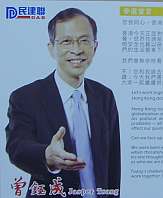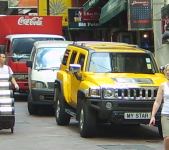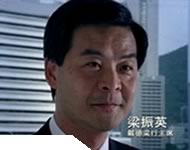20-26 July, 2008
We are surrounded by amazing things. Every day at dawn, as if by magic, battalions of Nepalese street cleaners descend from their hidden encampments up in the hills to scrub Hong Kong from top to bottom, mopping up all the dandruff, sputum and baby wee-wee left behind by the Mainland tourists who contribute so much to our economy. We woke up one morning and found that over 90 percent of copy editors in the English-speaking world had mysteriously decreed, as if as one, that ‘reduce’ can be used as an intransitive verb. And now the male half of humanity has its very own, extremely masculine, form of Nivea. If the women’s version is bland, like Philadelphia cream cheese, Nivea for Men must be bold and spicy, rivaling Gentleman’s Relish for the title of the thinking man’s Marmite. Except you spread it on your face. I think.

They must be tempted to blame grasping middle-class families. After all, the total financial benefit of the waiver is just HK$9,600 – the amount an Under-Secretary earns in an hour. But we are living in times of uncertainty, and those parts of the bourgeoisie not blessed with Big Lychee Civil Service terms and conditions must increasingly watch the pennies. What loose US monetary policy and surging demand in China and India can’t do, infrastructure-obsessed, money-hurling Chief Executive Donald Tsang will. How much Nivea for Men will HK$9,600 buy in two years?

The day starts with news of two bus bombings in Kunming, Yunnan Province, killing two, and a thought that strikes me. The thought is not formed through any train of logic but flashes instantly and involuntarily, and it can be summarized thus – wouldn’t it be incredibly hilarious if, as the Olympic Games begins, China erupts in farmers’ protests, Tibetan and Muslim uprisings, urban demonstrations and general mayhem, with CNN and BBC reporters and mothers of Tiananmen victims being mowed down in the crossfire in front of billions of worldwide TV viewers? How this evil notion burst into being in my mind I cannot imagine, and I swiftly leap under a freezing cold shower in an attempt to cleanse myself of such diabolical ideas.
If Beijing sports fans rioted because China failed to win one of the 65 gold medals in synchronized high-diving – that would be funny.
The mood on the Mid-Levels Escalator this morning is one of barely contained excitement, as Hong Kong’s middle-class commuters read through the election message from the Democratic Alliance for the Blah Blah of HK, which has just appeared in mailboxes in Perpetual Opulence Mansions and elsewhere in the neighbourhood. Eternal optimists (unless they know something the rest of us don’t about Beijing’s forthcoming behind-the-scenes election shenanigans), they have no fewer than six fun and wacky candidates running – one for each seat in the constituency. However, I am shocked and dismayed by their slogan, ‘Hong Kong deserves better’ in English, or ‘can be better’ if my reading of the Chinese is correct. How could anyone say such a thing? It implies dissatisfaction with the status quo, thus criticism of the Donald Tsang-bureaucracy-property cartel junta that so capably leads us all. In short, disloyalty and subversion. Then again, where do the DAB’s roots lie, four decades ago? In setting off bombs, Kunming-style.


Barely a day passes without some hand-wringing about the growing gap between rich and poor in Hong Kong, to the extent that moans about the rising tide of poverty go in one ear and out the other. What better way to revitalize the argument than to turn it on its head and sound the alarm that the better-off are an endangered species? This is the approach of Professional Commons, the mildly interesting group that (if I recall) mobilized pro-democracy Functional Constituency voters in such a way as to be able to nominate a symbolic alternative candidate to Sir Bow-Tie in the Chief Executive ‘election’ in early 2007 – an amusing development that Beijing’s script-writers had not included in the plot.
Owing to their mating and migratory habits, Hong Kong’s population of entrepreneurial, managerial and professional types is dwindling. As a group, it does not replicate itself fast enough or stay in town for long enough. In theory, this should not be a problem. Upwardly mobile sons of toil, dreaming of being the next Li Ka-shing or super-exciting accountant, should be pulling themselves up by their own bootstraps all around us. There was a time when starving semi-literates swam across shark-infested Mirs Bay to do just that. But the lower orders today sit in sullen resignation, and our white collar ranks get thinner by the week.

- Use entrapment and a distant penal colony to clear triads from the streets, freeing small businesses from thuggish monthly tax-collectors.
- Scrap the high land price policy so people can use their city’s space without having to pay hidden taxes to the property tycoons and infrastructure-building bureaucrats.
So the Big Lychee’s bourgeoisie will continue to wither. Doctors and teachers will become harder to find. Lawyers and golfers will become objects of nostalgia. The last HKU-educated Administrative Officer will depart in a helicopter from a Government rooftop. The one remaining Canadian-educated Mercedes owner who pretends he can only speak English and not Cantonese will pass away, and be stuffed and mounted in a glass case in the Donald Tsang Museum of Natural History on the 53rd floor of Block 34G in the West Kowloon Cultural Mega-Hub. In another couple of decades, I could be the only middle class person left here, trundling down a rusting Mid-Levels Escalator every morning alone, with no-one to talk to, wishing I had stocked up on olives and Nivea for Men.

Detouring through Lan Kwai Fong this morning, I encounter a truly amazing sight – dozens of passers-by have dropped to their knees before a garishly coloured Chevrolet Tahoe with a quasi-Humvee body wrapped around it. Are they in awe of the exceptional masculinity of the four-ton beast’s owner? Are the female worshipers begging to be impregnated by him? Are the male ones left speechless by his worldliness and sophistication? Are they stunned by his exquisite taste and originality in personalized number plates? I cannot resist asking. They tell me they are praying for US$250-a-barrel oil.
As an internationally educated and non-rabid yet authentic patriot, Leung was first tipped as a potential Chief Executive of Hong Kong back in the 1980s. All these years later, he is still not in his mid-50s. After the disaster that was Tung Chee-hwa – to whom CY was an advisor on bringing property prices down – many observers have assumed that Beijing would never put another businessman in charge of Hong Kong. However, with Sir Bow-Tie visibly starting to flounder and succumb to Tofu-for-Brains-style money-flinging panic attacks, Beijing’s more acute emissaries may be having second thoughts about the wisdom of putting blinkered, British-trained administrators into a position that requires, among other things, original thought.
The spat between CY and the Employers’ Federation goes back a while. Around two months ago, he warned the business owners to expect a minimum wage. Although the speech was delivered to the bosses, only the most naïve would doubt that CY had a bigger audience in mind. We have tried the hereditary tycoons’ hereditary tycoon. We have tried the local-boy-turned-bureaucrat. So why not try the local-boy-turned-tycoon? It would be an astute bit of positioning – the populist businessman, feared by the property cartel, adored by the common man.
I HAVE found what I was looking for – “one mile per gallon.”


Hong Kong wakes to learn the shocking news that the Export Credit Insurance Corporation is still in existence. The public-sector body was founded in the mid-1960s when people worked seven 12-hour days a week in sweatshops, assembling wigs, plastic flowers and cotton slippers. By guaranteeing payment, the Corporation encouraged factory owners to offer credit to their customers, thus helping to fuel the rapid development of Hong Kong industry into such space-age, high-tech sectors as hand-held transistor radios and clockwork tin robots with flashing lights on their heads.
Four decades later, the Big Lychee is a services-based economy where people work in air-conditioned offices, trading streams of electronic blips with one another, pausing frequently to sip organic ginger and jojoba cappuccino and gently massage soothing Nivea for Men into their temples. To find an Export Credit Insurance Corporation here is a bit like finding a washboard and mangle in someone’s home, or chloroform in an operating theatre. But then again, we have the Hong Kong Trade Development Council, still beavering away, promoting those same wigs and plastic flowers around the world. We have the Hong Kong Tourism Board, still trying to cram more and more visitors into the streets of the world’s biggest sardine can.
The Credit Insurance outfit comes to light because boss KK Cheung has resigned (whatever its website says this fine morning) after allegedly frittering public money away on Mainland karaoke sessions. The Tourism Board’s main claim to fame recently has been its own shenanigans, notably ex-boss Clara Chong’s medical insurance, which at HK$177,000 over two years was almost as much as one of the Government’s Under-Secretaries earns in three weeks. (“The booze-laden opening of a branch in Korea,” fumed the Standard, as if the Land of Morning Calm has ever known a teetotal office opening.)
Nothing, we are told, lasts forever. All living things eventually die. Even the mightiest 3,000-year-old giant redwood tree must keel over and rot some day. But after some nuclear holocaust has fried the planet, after the last, hardiest cockroaches have expired, even after the sun has blown up and evaporated the solar system, we can be sure that somewhere under the ashes and rubble, the Hong Kong Productivity Council, the Hong Kong Mortgage Corporation and all the rest will be filing their expenses claims, producing glossy brochures and exploring new ‘business’ opportunities as if nothing had happened.
But how pitiful. As Thomas More might have said to the lying witness Richard Rich, “It profits a man nothing to trade his soul for the whole world, but for karaoke?”
stores
Dymocks, IFC Mall
& other HK Dymocks
(some, probably, maybe)
online
Hong Kong & worldwide
USA & worldwide
UK
Canada
Germany
Japan
France